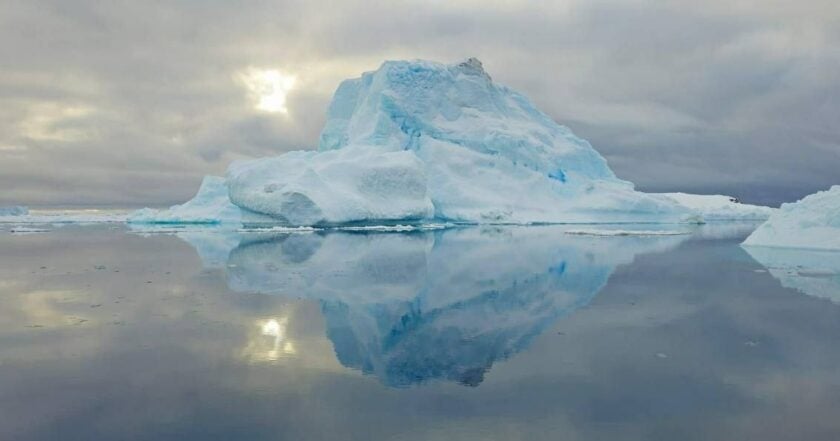Solutions from Ukraine: National Antarctic Science Center joins project to cultivate beneficial bacteria in Antarctica

Фото: Фейсбук / Національний антарктичний науковий центр
The National Antarctic Science Center has joined a project to cultivate beneficial Antarctic bacteria.
The Ministry of Education and Science reported this.
What is the solution?
"Ukrainian scientists will search for valuable compounds among Antarctic marine bacteria to use them for humanity's future needs.
These studies will take place in the new Horizon Europe project, which the National Antarctic Science Center has joined. The project is called "Uncovering the Hidden Treasures of Aquatic Extremophiles: Sustainable Development of Industrially Significant New Active Biomolecules (EXPLORA)," the report says.
How does it work?
Marine bacteria from the Southern Ocean that can withstand prolonged low temperatures and high levels of ultraviolet radiation are known as aquatic extremophiles.
Scientists will try to figure out how they do it.
First, the project will select marine bacteria in the area of the Akademik Vernadsky station, in the waters of the Wilhelm Archipelago off the western coast of the Antarctic Peninsula.
The following stages are planned:
- DNA analysis of the selected samples, determination of their composition and functional characteristics;
- creation of a database of promising microorganisms that can potentially synthesize beneficial compounds with antifreeze and antioxidant properties; selection of optimal conditions for growing bacteria and their cultivation;
- study of the genome of bacterial cultures for genes encoding valuable properties.
The most promising bacterial cultures will then be sent to laboratories, where the microorganisms will be propagated in bioreactors for the synthesis and isolation of useful compounds.
Scientists hope that the resulting compounds will be potentially helpful for:
- pharmaceuticals,
- cosmetology,
- medicine, etc.
Thus, in the future, scientific developments can turn into new products that will be useful to humanity.
A robotic system for sampling in the Southern Ocean is planned to be developed in cooperation with partners and tested at the Akademik Vernadsky station.
This will make the selection of microorganisms more accurate and standardized and reduce human involvement in this process and its potential impact on the process.
The EXPLORA project is being implemented by the National Academy of Sciences of Ukraine with 12 partners from Spain, Portugal, Switzerland, the Netherlands, Germany and Bulgaria. It started on December 1, 2024, and is designed for 48 months.
For reference:
As reported, 28 years ago, the United Kingdom transferred the Akademik Vernadsky Antarctic Station to Ukraine; at that time, it was called Faraday.
It was previously reported that Ukraine and Poland have launched a joint international study of the Antarctic seabed.
It was also reported that Ukraine will continue to conduct research in Antarctica and ensure the uninterrupted operation of the Akademik Vernadsky station and the Noosphere icebreaker. The Cabinet of Ministers adopted a corresponding resolution.
Additionally, Rubryka announced that the Ukrainian Antarctic Journal has been officially incorporated into the international bibliographic and abstract database Scopus.

Vernadsky station polar explorers open photo exhibition about Russia's war in Ukraine

Ukraine's Noosfera icebreaker arrives at Vernadsky Research Base

New addition near Vernadsky station: baby penguins were born

Scientists from Vernadsky Station join marathon to draw attention to war in Ukraine



















































